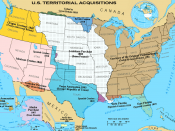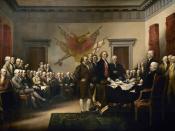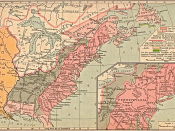In order to support and protect their newly-won freedoms, the Second Continental Congress proposed an Article of Confederation in 1777 to the thirteen colonies, and it was ratified by March 1, 1781. It has been said that these Articles provided the United States with an effective government from the time of its ratification until 1789, upon which time the current Constitution was widely accepted. It can certainly be said that it provided an effective government in terms of territory, in the sense that it stabilized the northwest areas, if not the entire country. Others might argue that the Articles were lacking in the most basic constructs of a government: economy, military, and a respected political system.
During the time period in which the Articles were passed, most average citizens distrusted taxation and standing armies, due to the American Revolutionary war with Britain, and therefore the Continental Congress left such basic ideals out of the Articles.
Had they included a monetary tax or any other policy despised by the people, the Continental Congress would have alienated and disjointed the delicate union. Thus, the Articles were unable to regulate trade or levy taxes, putting a literal dent in the economy. Such a lack of funds hindered growth, for the government was unable to properly purchase any type of necessary supplies, and it was unable to demand any help from singular states, relying on optional donations. Joseph Jones of Virginia commented such to George Washington in 1783, noting that "every class must know of the inability of Congress to pay their demands." As well as the inability to demand taxation, the Articles were inadequately equipped to equally distribute power to the colonies. Their policies were believed to "bear hardest on the most commercial states," as the Rhode Island Assembly wrote to Congress in...


